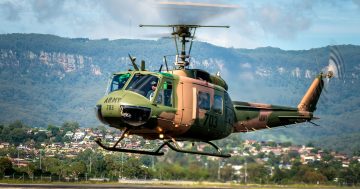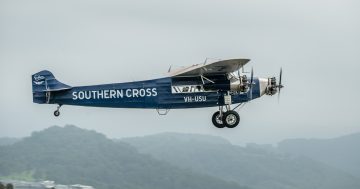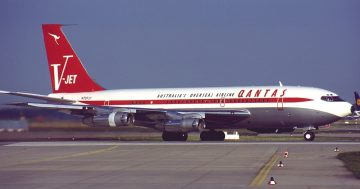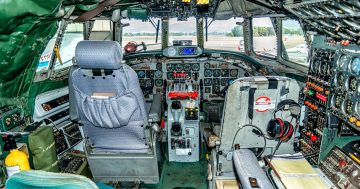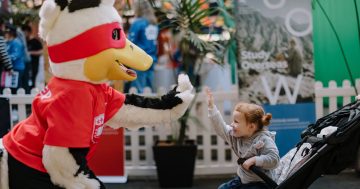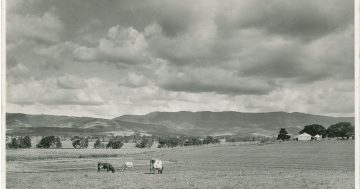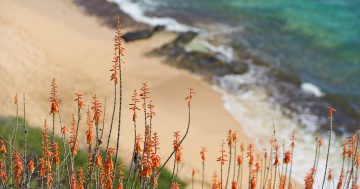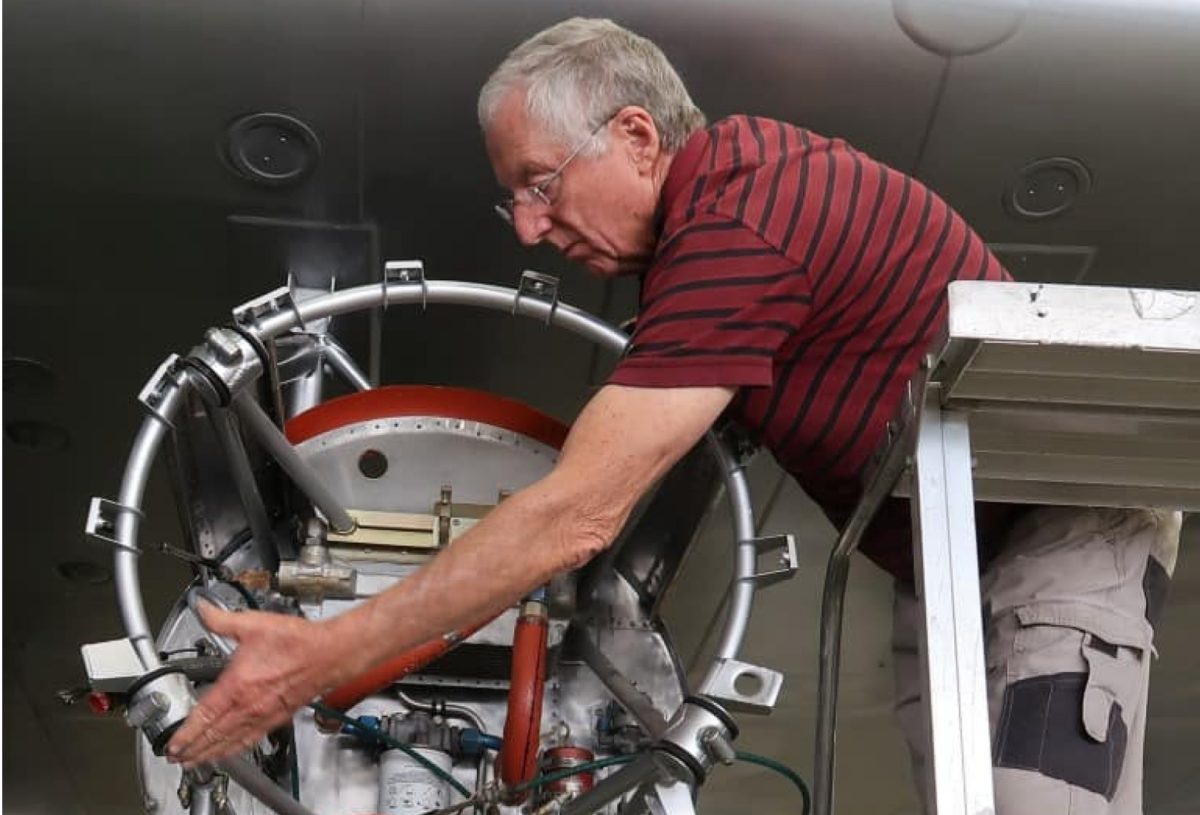
HARS project engineer Jim Thurston working on restoration of the Southern Cross replica aircraft. Photo: Howard Mitchell.
UPDATED 10am: The replica of Sir Charles Kingsford Smith’s plane will take take off from Shellharbour Airport at 10:15 am today (Friday 8 December) and have a brief flight, depending on wind and weather before returning to HARS.
Restoration of the replica Southern Cross aircraft has been completed by the Historical Aircraft Restoration Society (HARS), 21 years after it was damaged during a flight.
It also comes 95 years after Australian aviation pioneer Sir Charles Kingsford Smith made the first trans-Pacific flight in the original Southern Cross aircraft.
But while the Fokker FVIIB replica is now fully restored to airworthy status, thanks to the HARS volunteers at Albion Park, it’s still awaiting permission to fly.
This hold has meant she missed the opportunity to mark Smith’s 95th anniversary at the Sydney airport in June.
HARS media and marketing team coordinator Ian Badham said the faithful replica of the original plane was built in the 1980s as a tribute to Smith and toured Australia during the 1988 Bicentenary, raising money for the Royal Flying Doctors Service.
“The Southern Cross replica is the replica of Charles Kingsford Smith’s plane that was the first to fly across the Pacific in 1928 when they said it couldn’t be done,” Ian said.
The flight was in three stages, from California to Brisbane via Hawaii and Fiji.
“Apparently, when they arrived at each leg, they were absolutely exhausted, because they’d been in the air 20 or 30 hours,” Ian said.
“Smithy’s adage was that, ‘Well, if I can carry a gallon of water, that’s a gallon of fuel we’re not carrying. I’ll drink at some point, but if I don’t have the gallon of fuel, we’re not going to make it.”
Ian said that in 2002 the replica was doing a flight at Parafield South Australia, when it lost a main wheel on takeoff.
“So the pilot flew around forever and burned off the fuel and then came and landed,” he said.
“As they got slower and slower, it finally tipped on its side where the wheel had collapsed, and half ripped off a wing.”
He said the South Australian government spent five years trying to find someone to fix it, but got nowhere.
“Nobody wanted to touch it because they didn’t know how much damage there was to the motors and damage to its wing,” he said.
“So eventually, the HARS people said, ‘Well, we’ll fix it. Put it on a truck and send it up here, but if we fix it, we keep it.’”
The government eventually agreed, with the largest “exact replica” aircraft in the world arriving in 2010 and a small group of HARS volunteers have worked on it ever since.
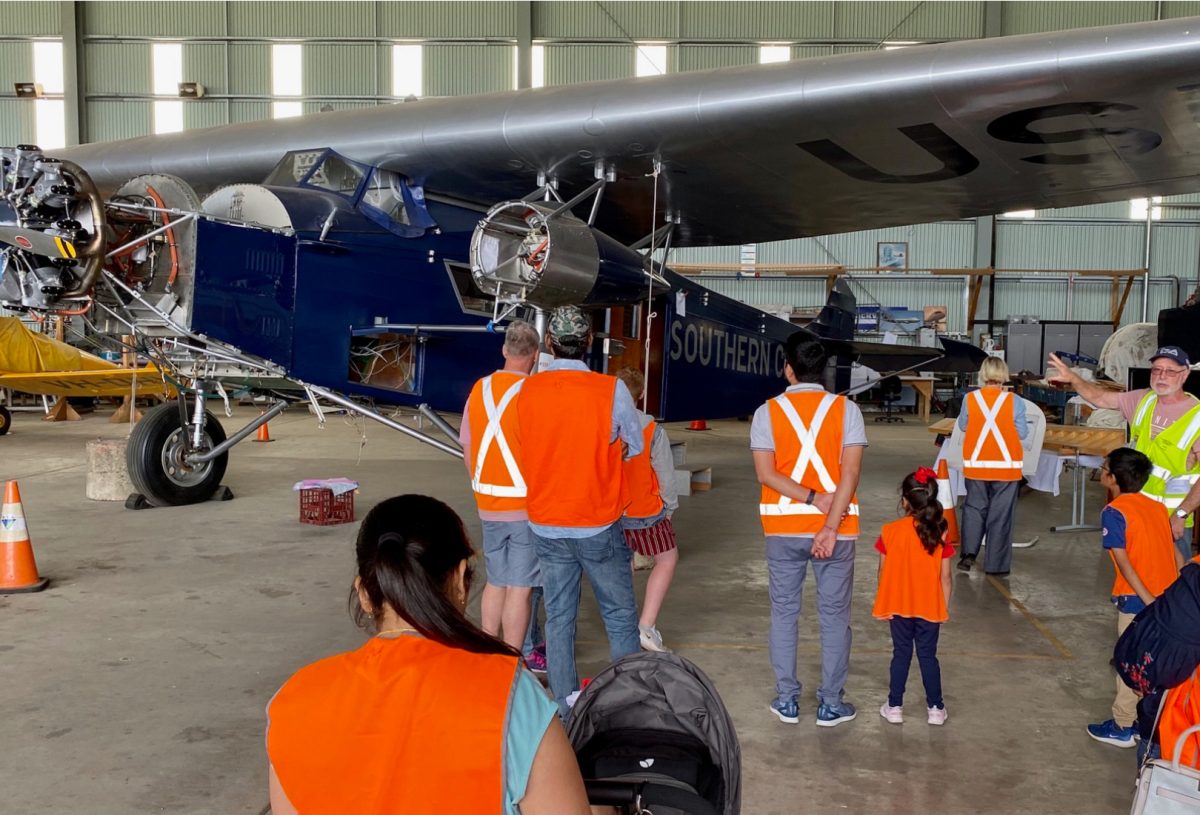
Visitors to HARS looking over the replica of Charles Kingsford Smith’s famous Southern Cross aircraft. Photo: Mark Mennie.
“A guy called Jim Thurston – he’s an amazing 82-year-old guy and he’s one of the guys responsible for getting the Constellation back here – this is his project to see him out, he says,” Ian said.
“Jim was an aircraft engineer with Qantas for his whole career, then he retired back here.
“It’s the old story of grandfather’s axe – it’s the original grandfather’s axe but all it’s got is a new handle and a new head multiple times. But it’s the original axe,” he said, laughing.
“Well, the thing about this aeroplane is that it’s the original replica. It’s not even the original.
“All they’ve done is totally rebuild the wing – one of the largest wings of any plane in Australia.
“The wings are all out of timber and canvas.”
Add to that the rebuilding of the fuselage, the motor being totally rebuilt back to zero time, redesigning and rebuilding the landing gear to avoid collapse again, changing the electrical system from an improvised 12-volt system to a proper electric aviation 28-volt system, and new radios.
“Sydney Airport was keen for Jim to take it up there in June, which was going to be the 95th anniversary of Smithy doing his crossing, but we’re still trying to get permission to fly,” he said.
“There’s nothing for us to do, but give us permission to fly.
“It will happen, so we’ll fly soon.”
Looking at the navy-blue aircraft with its large wings as it sits in the HARS hanger now, it’s in pristine condition.
“What’s just impossible anywhere else to do, they do it here,” Ian said.
“These guys, with a lifetime of experience as engineers or as pilots, just do it.”









